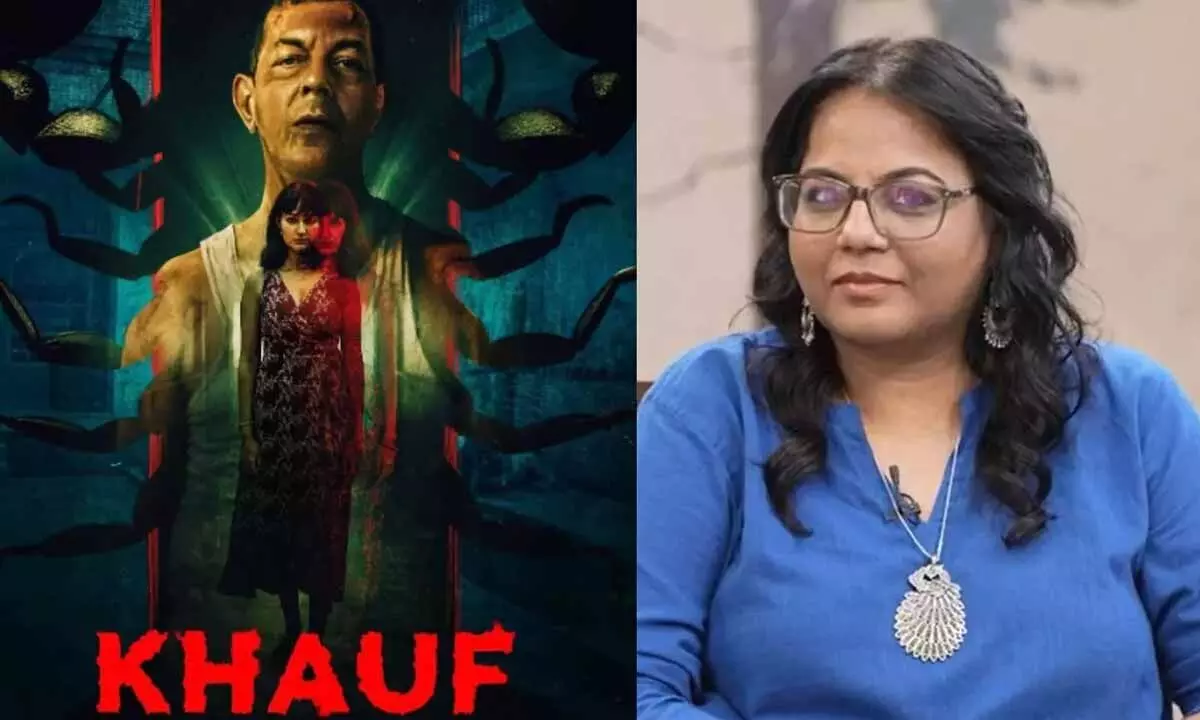Smita Singh’s Khauf doesn’t just offer supernatural scares — it delivers a searing feminist horror story set against the oppressive backdrop of modern Delhi. In a genre long dominated by sleazy thrills and cheap jump scares, Khauf dares to say something deeper: for women, horror isn’t confined to haunted rooms — it lurks on every street. Now streaming on Amazon Prime Video, Khauf follows Madhuri (Monika Panwar), a young woman fleeing trauma from her past, who moves into a women’s hostel on the city's outskirts.
Assigned Room 333, she is warned of its sinister history. Yet the ghostly dangers that seem to stalk her are only part of the threat. The real danger comes from the living — embodied by a ruthless hakim (Rajat Kapoor) preying on women's pain and a police officer (Geetanjali Kulkarni) who is both an enforcer and a victim of a broken system.

Unlike typical Indian horror, Khauf does not separate its ghosts from its real-world villains. Here, supernatural hauntings and systemic misogyny bleed into each other. The ghosts aren't just metaphors; they are the consequences of a society that routinely silences, punishes, and preys on women.
Set in Delhi — a city forever shadowed by its own gendered violence — Khauf uses the environment brilliantly. Crumbling hostel corridors, dark alleys, and dense woods combine with an eerie soundtrack to create a city that feels not just unsafe, but alive with threat. Horror is everywhere, and women, like Madhuri, must fight not only for survival but for agency.
Monika Panwar brings both vulnerability and ferocity to Madhuri’s journey. Her transformation — from haunted survivor to someone willing to confront her fears — reflects a broader struggle against societal erasure. Rajat Kapoor is chilling as the soft-spoken predator, while Geetanjali Kulkarni adds layers to a character torn between duty and guilt.
Khauf falters slightly in its final act, falling back on the familiar trope where trauma is the price women must pay for empowerment. Yet its willingness to confront uncomfortable truths without turning preachy is a major victory for Indian horror storytelling. In Khauf, Smita Singh reimagines the horror genre — not just to scare, but to expose.
And in doing so, she reminds us: in a world shaped by patriarchy, survival itself is a kind of rebellion..
Entertainment

When Trauma Haunts Louder Than Ghosts: Khauf Redefines Indian Horror

Smita Singh’s Khauf doesn’t just offer supernatural scares — it delivers a searing feminist horror story set against the oppressive backdrop of modern Delhi.















